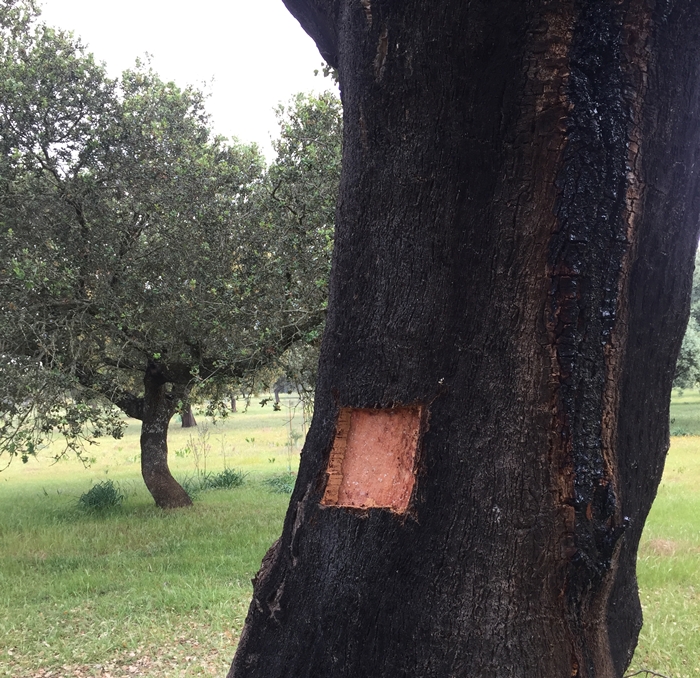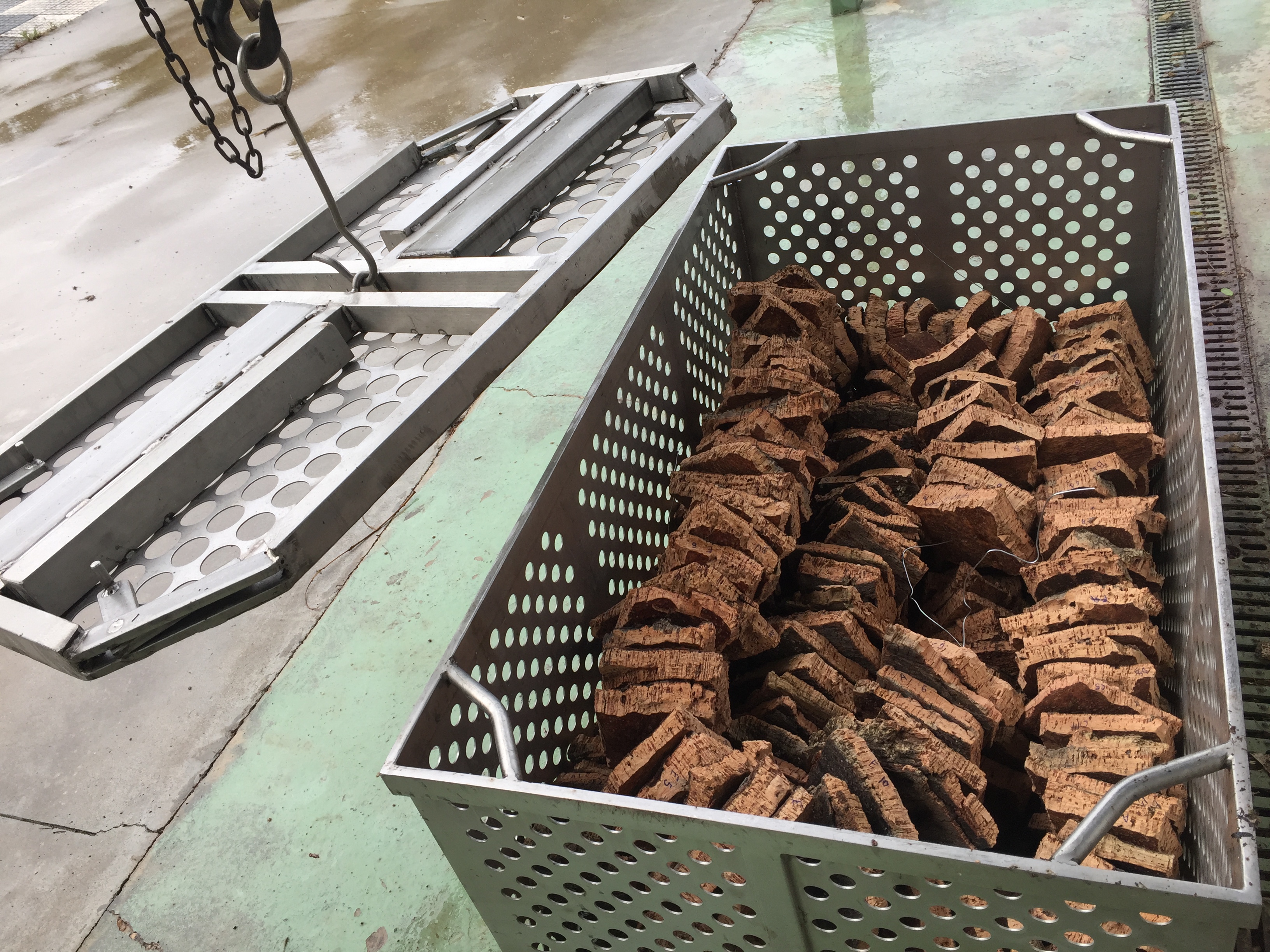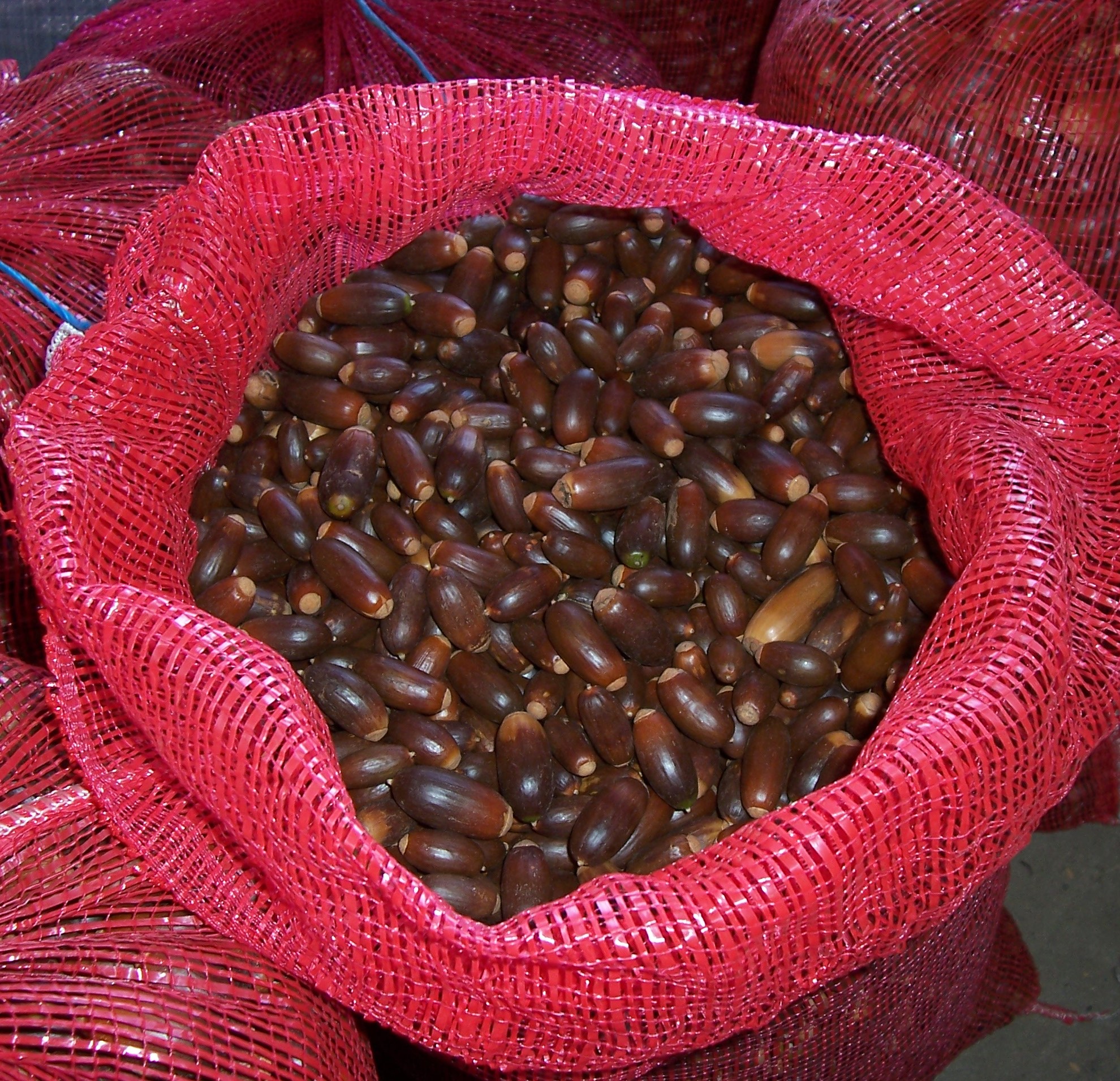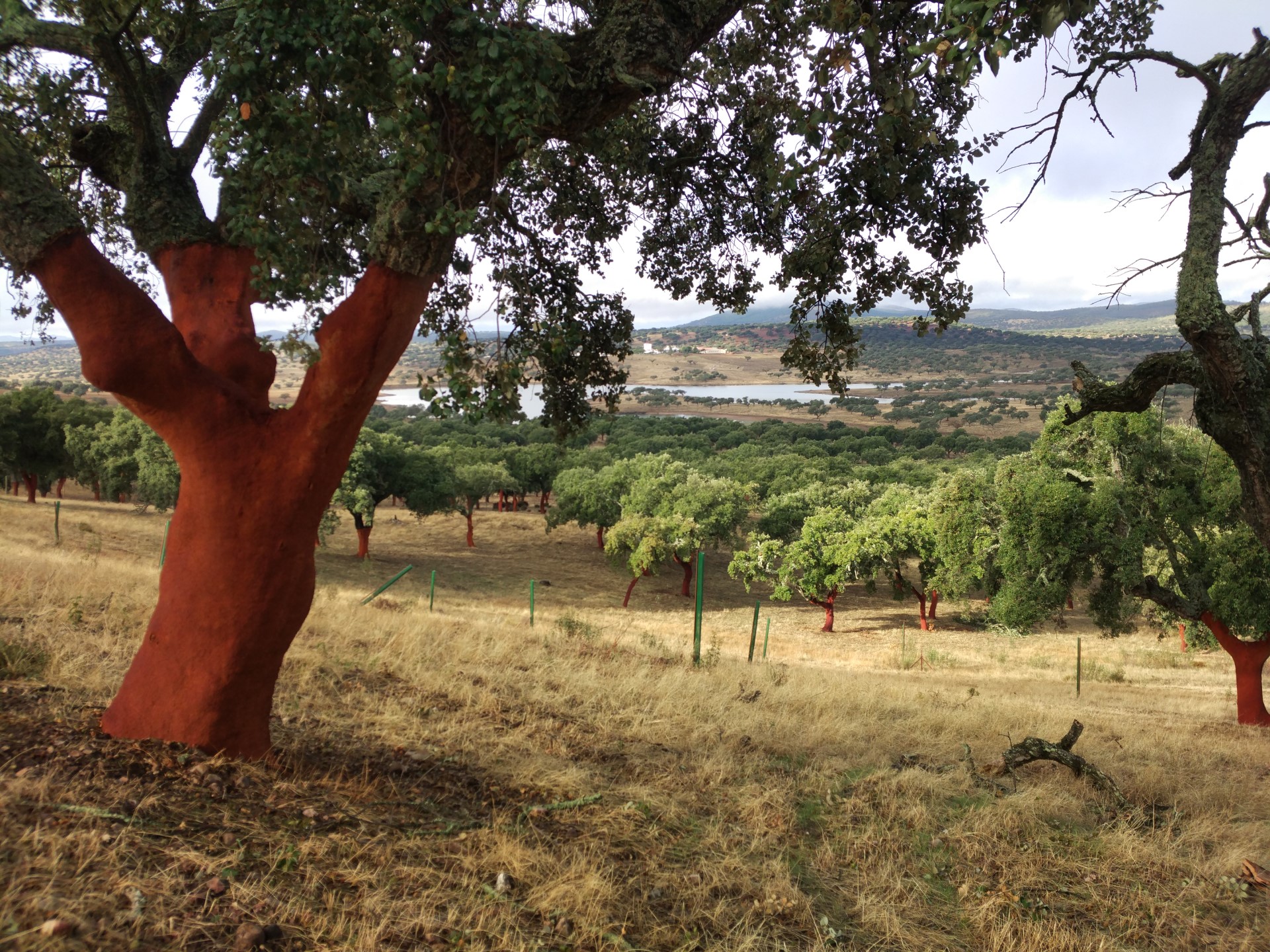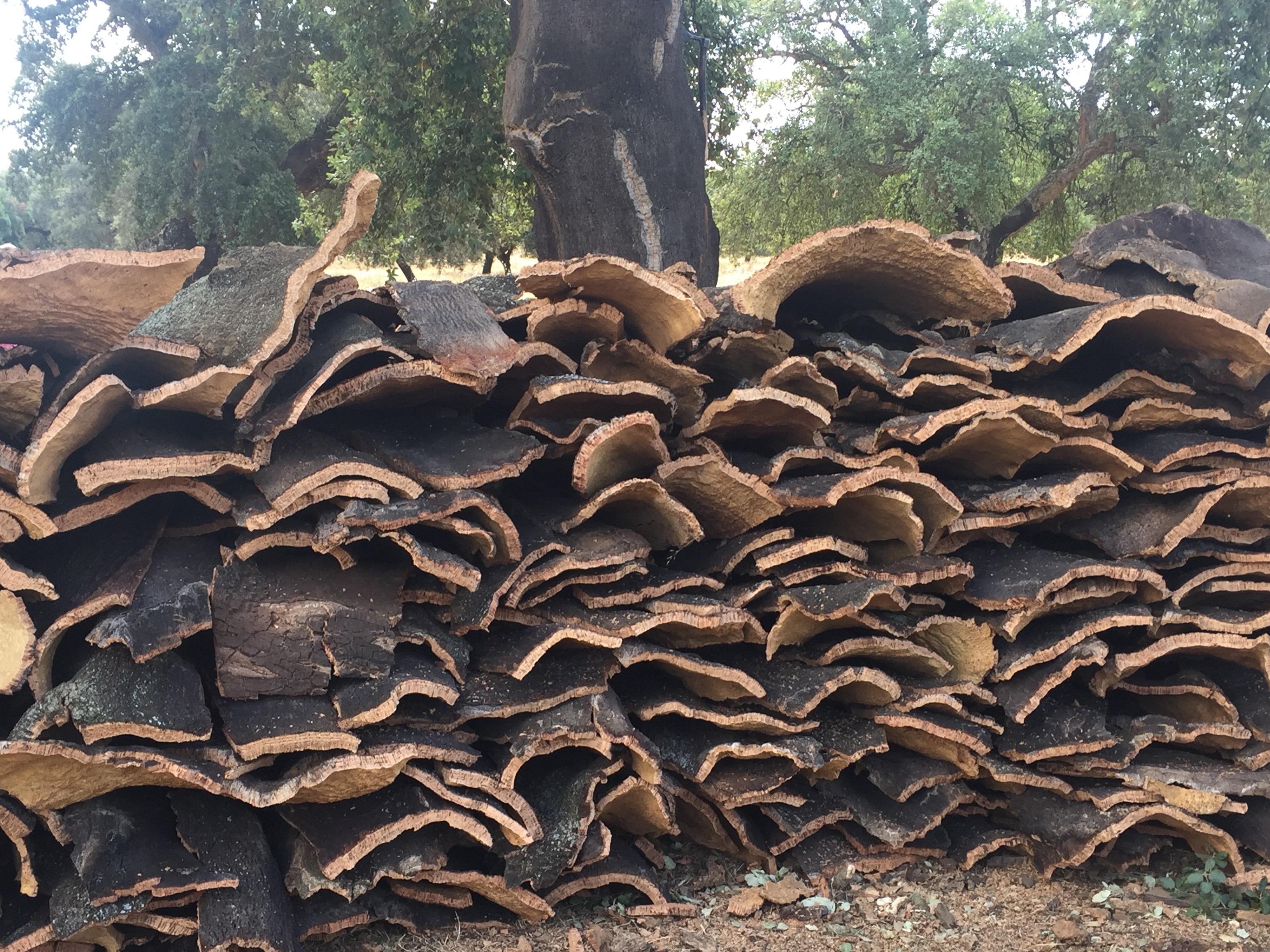Cork oak forest
 Services
Services
 Plan de Calas
Plan de Calas
The “Plan de Calas” or Cork Quality Field Sampling Plan is a service provided by the Cork, Wood and Charcoal Institute to cork oak grove proprietors and managers, which is a reference for sales operations, as it allows to make estimations on the quality of the cork of the oaks existing in the plots that are to be debarked in each campaign.
PLAN DE CALAS 2021 Campaign, applications open until 31st of May.
Procedure to apply for the “Plan de Calas” service
Should you wish to see previous samples from “Plan de Calas” that are kept in the Cork Samples Collection, please follow this link to download the application form.
“Plan de Calas” consists of the collection of samples from the field by technical personnel from the Institute (experts in plant sampling techniques and cork extraction); and their subsequent analysis at the ICMC laboratories by qualified staff. For the purposes of their study, cork samples are subject to a process that is similar to the process applied in the preparation industry (drying, boiling, trimming, calibrating and sorting).
Based on the study of the samples, the technical experts draft a technical report with an estimation of the cork quality that will be extracted from the plot, following the parameters of the “Q” quality index drafted by ICMC; where the percentage of each type of cork is detailed (following the classification used in the cork sector: thick, good, thin, thinner, reject). Also a comparative analysis is included with the local and regional average quality values, as well as information on the main alterations affecting the cork in the plot: the average calibre and the increased calibre that will be obtained after the cork planks are subjected to the boiling process, amongst other aspects. The report concludes with recommendations for the improvement of the quality of the cork that is in the plot in the middle and long-terms.
Additionally, another forestry report is drafted dealing with the use of the soil, livestock use, the state of health (pests and diseases), assessment of the pruning and debarking process from previous years and recommendation on forestry management approaches.
“Plan de Calas” has a double purpose: reporting on the quality of the cork batch the relevant proprietor intends to sell, even before the debarking process has taken place; and obtaining a series of data for the studies and research projects conducted by ICMC with the purpose of understanding the parameters that indicate the average quality of cork, its distribution (spatial, historical and the factors that determine it) as well as the forestry status of the bushes. Such database, which is updated every year, contributes to inform about the general state of the Extremadura cork oak groves (their health, the use made by the agricultural and livestock farm systems to which they are submitted, forest treatments, details on the growth of trees, production and regeneration status).
“Plan de Calas” is a reference to establish the Selected Stands Network for the cork oaks of the region and it works as an alert system for early detection of diseases and pests. All the samples collected for the “Plan de Calas” are stored in the Institute’s Cork Samples Collection.
 Certificación de semillas y Red de Rodales Selectos
Certificación de semillas y Red de Rodales Selectos
Recolección de bellotas de rodales selectos de alcornoque CAMPAÑA 2021-2022
Protocolo de certificación de bellota de Rodales Selectos
Impreso de solicitud para propietarios y gestores
Formulario de aprovechamiento de bellota
Para contribuir a la gestión sostenible y mejorar la conservación de los recursos forestales es necesario utilizar semillas de reproducción que sean fenotípicas y genéticamente de alta calidad. El Real Decreto 289/2003, de 7 de marzo, sobre comercialización de los materiales forestales de reproducción (semillas) define y establece las diferentes categorías para su identificación; así como los requisitos que deben cumplir. Para su control existe un registro nacional y el Catálogo nacional de materiales de base.
En Extremadura es obligatorio utilizar bellota procedente de un rodal selecto en aquellas repoblaciones de alcornoques que estén acogidas al programa de forestación de tierras agrarias y en los casos en los que se soliciten ayudas a la gestión sostenibles de los montes. Sólo aquellas bellotas de alcornoque que procedan de la Red de Rodales Selectos de Extremadura serán certificadas como material forestal de reproducción seleccionado. Esta certificación será emitida por el Centro de Investigaciones Científicas y Tecnológicas de Extremadura (CICYTEX).
En 2021, la Red de Rodales Selectos de Extremadura inscritos en el Catálogo Nacional de Materiales de Base ha sido ampliada de 63 a 65, tras resolución del Ministerio para la Transición y el Reto Demográfico, publicada en el Boletín Oficial del Estado de 12 de mayo. El criterio que deben cumplir las dehesas que quieran obtener dicha declaración es que la producción media de corcho sea superior en cantidad y calidad a la media observada en su región de procedencia.
Regiones de procedencia en Extremadura
1. Norte de Cáceres-Salamanca
2. Montes de Toledo-Villuercas
3. Sierra de San Pedro
4. Sierra Morena Occidental
Listado de la red de Rodales Selectos de Alcornoque en Extremadura
Impreso de solicitud para la inscripción en la Red de Rodales Selectos de Extremadura
Resolución de 28 de julio de 2009 sobre Catálogo Nacional de las Regiones de Procedencia relativa a diversas especies forestales (regiones de procedencia de Quercus suber L. (alcornoque), página 20).
 Technical advice on cork oak forests and cork
Technical advice on cork oak forests and cork
The Cork, Wood and Charcoal Institute (ICMC) drafts technical reports on the following topics at the request of proprietors, managers or forestry engineers:
Estimated age of cork on standing tree and on a pile. It allows the proprietor of the batch to plan debarking and commercialisation accordingly.
Determination of the potential problems in a given cork batch. The intended purpose is to determine the final destination of a product in the cork industry according to such alterations.
Provision of advice to manufacturers of debarking systems. ICMC engineers test prototypes and commercial systems with the purpose of improving the devices.
Provision of advice to users of debarking systems on the correct use of the systems and on adequate working conditions.
Technical expert opinions on debarking, both traditionally and with the use of new technologies.
Provision of advice to proprietors of reforestation grounds to solve specific issues such as pests, disease, fire, etc. and provide guidance on the necessary measures.
Provision of advice based on cork samples collections to deal with specific issues through recommended forestry approaches and/or guidance to the proprietor of the cork oak forest on the practices that they should apply or avoid.
Provision of advice on plant health. Intended to diagnose the presence of the most common diseases and pests of cork oak forests, draft recommendations to prevent their spread and define the most adequate treatments. It is of utmost importance to detect the presence of phytophthora by means of PCR techniques, which provides for the early diagnosis and curb the spread of the disease through preventative measures.
Contact: cicytex.icmc@juntaex.es.




